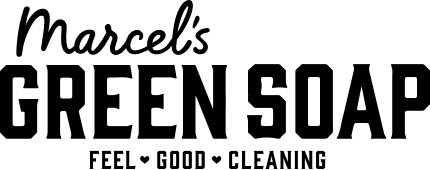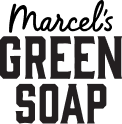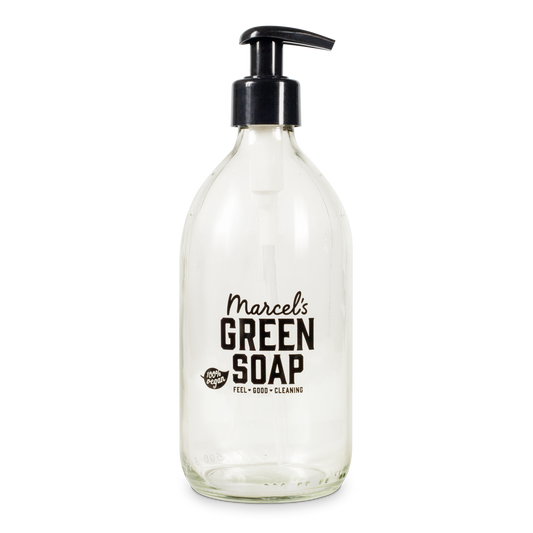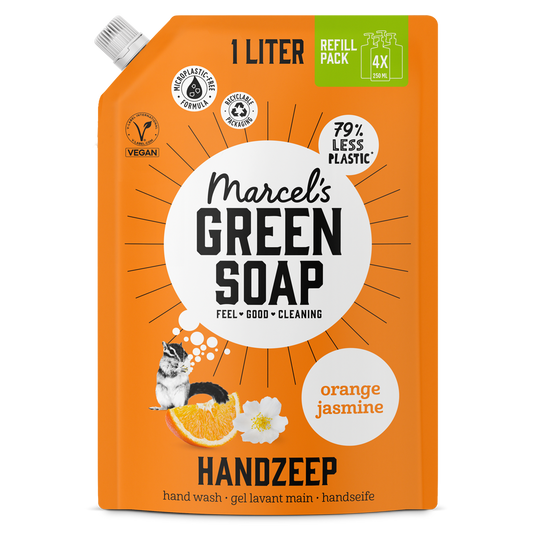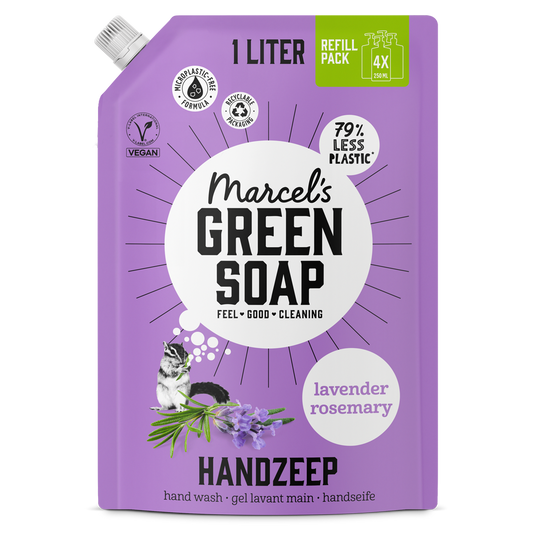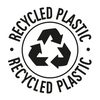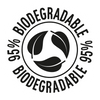Plastic waste from cleaning products? there is another way. Hand soap, detergent, all-purpose cleaner - it all gets wrapped in plastic and thrown away again. Marcel's Green Soap is trying to change that.
How did Marcel's Green Soap come about?
“I was inspired by my three daughters. They said: 'Dad, the things you are doing are actually not that good for the planet and what the world will look like in 10, 20 years.' I have always worked at Unilever and large companies like that. That's where I stopped. Everyone has to clean their house every day, and in my opinion that can be a lot more sustainable and positive. That's how I founded Marcel's Green Soap, using only biodegradable ingredients and packaged in 100% recycled plastic. That started in the Netherlands, but we are now throughout Western Europe."
Why did you decide to make packaging from recycled plastic?
‘One of the reasons I quit the big companies is that I didn't want to help bring more and more products, and thus plastic, into the world. In 1990, for example, I put a product on the market that contained 20 per cent recycled plastic. That was a revolution at the time. But now that product is still there years later and I really can't imagine that nothing has changed in the meantime. So when I started three years ago, one of my first goals was to get into 100% recycled plastic as soon as possible. That wasn't at all difficult either.’
How did you achieve that?
“I initially found a party in England that collected plastic milk bottles. I then entered into a partnership with a waste processing company and various parties to ensure that we collect plastic from Dutch households. We use that to make the new bottles. I like to use the term plastic footprint: like a carbon footprint, but specifically for plastic. My goal is to have a positive plastic footprint, in other words: to remove more plastic from the environment (through recycling) than I leave behind."
Do you think every producer should take that responsibility?
‘That seems only logical to me. You can't just pump a few thousand bottles a day into the market, and as soon as that goes out of the factory say it's not your responsibility anymore. You know those bottles end up in the environment and in all sorts of places where they don't belong. That responsibility cannot just be put on the government, or the consumer or the retailer. Yet when it comes to plastic bottles, that still seems to be the norm. In the Netherlands, we throw some 1.4 billion plastic bottles into the rubbish every year. People often do not realise how big the plastic problem is because it is not visible. Once plastic is in the bin, it seems like it no longer belongs to you and is someone else's concern.’
What else are you doing to reduce your plastic footprint?
‘I am now looking at whether the plastic in my products can be removed altogether. Instead of hand soap or shower gel, people can just use a bar of soap again. A challenge is sometimes to take people along step by step: how do you encourage someone to use a product in a new way? I think that also has to do with a positive message: I try to make more sustainable cleaning fun first of all, rather than pointing the finger. I am also developing several refill packs. Especially in countries like Germany and the UK, there is a lot of demand for larger containers, so that people can go to the shop with their own bottle to refill their washing-up liquid, for example. That really requires a reversed way of thinking. When a bottle is empty, it's actually still a perfect container that you could use another liquid in. But people throw it away and buy a new one.’
Finally, do you have a golden tip to save plastic when you clean your house?
"You can also simply use less soap. All my products are concentrated, so you can use them endlessly. I think I'm the only manufacturer who says: 'use less!'. You don't need much, and do so."
Friday June 28, source: https://www.nationalgeographic.nl/milieu/2019/06/plastic-trouw-door-schoonmaakmiddels-het-kan-ook-anders
